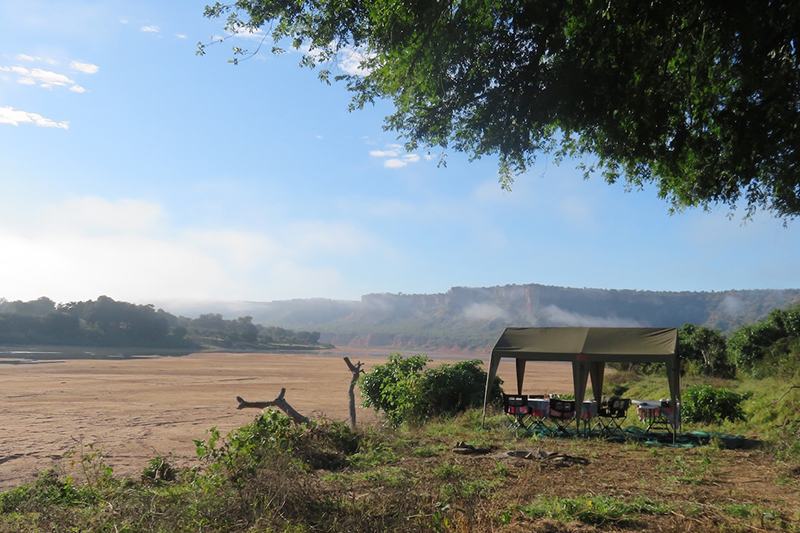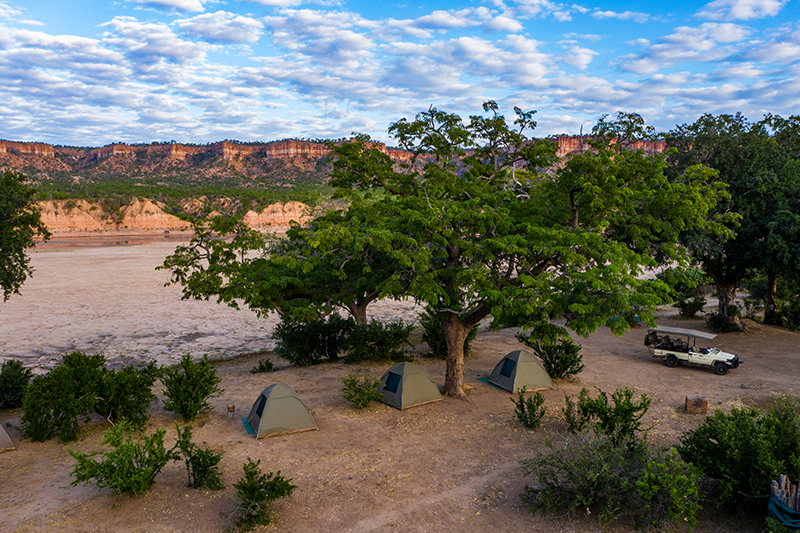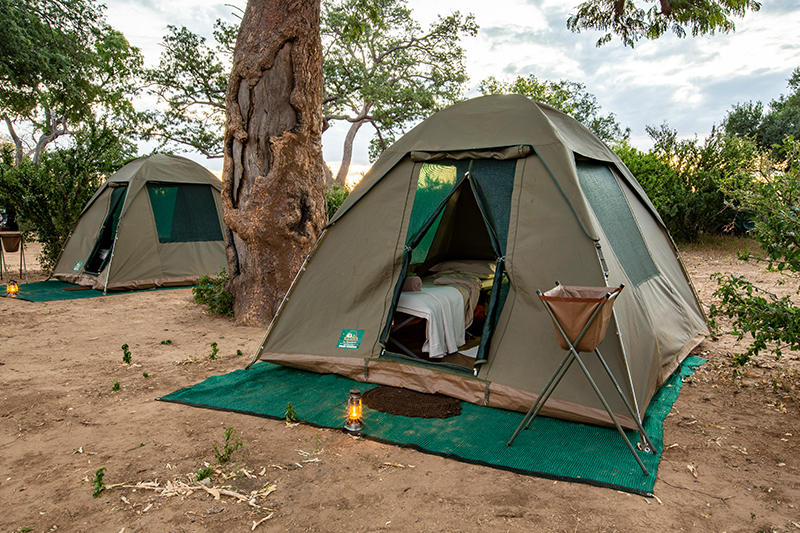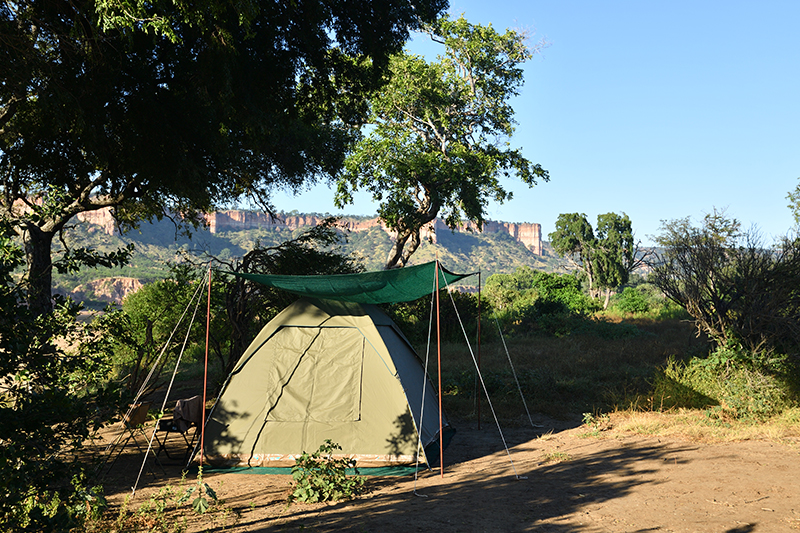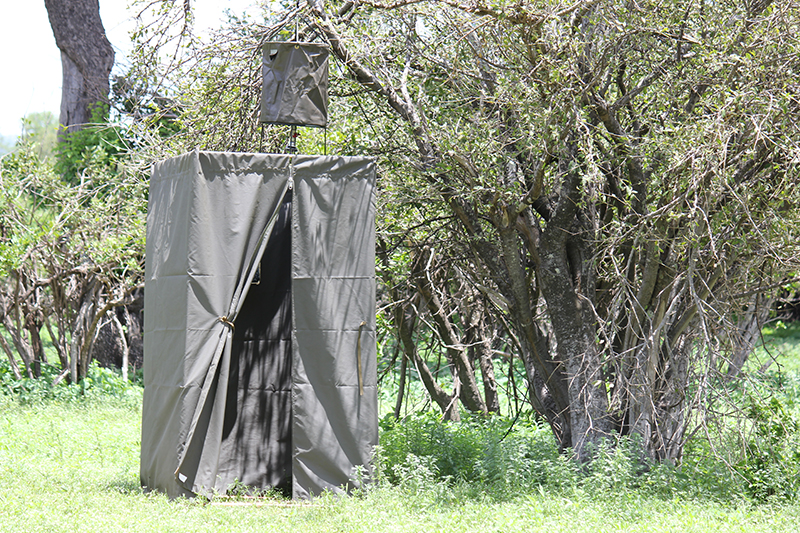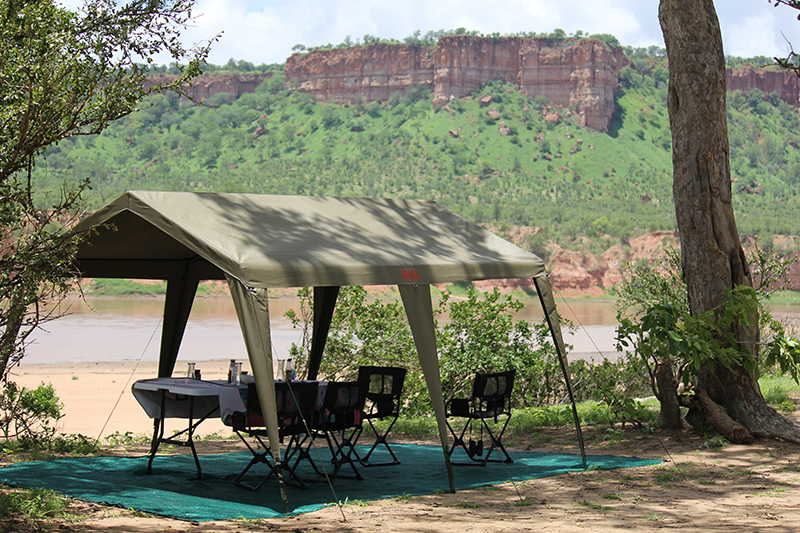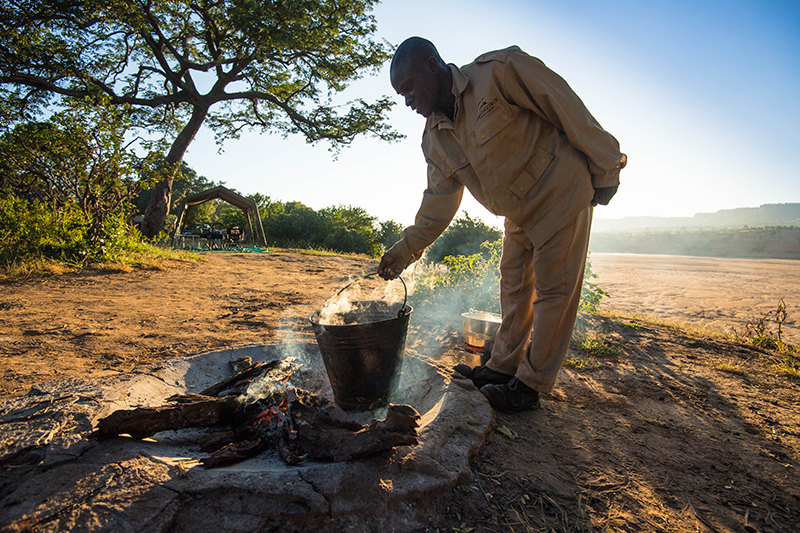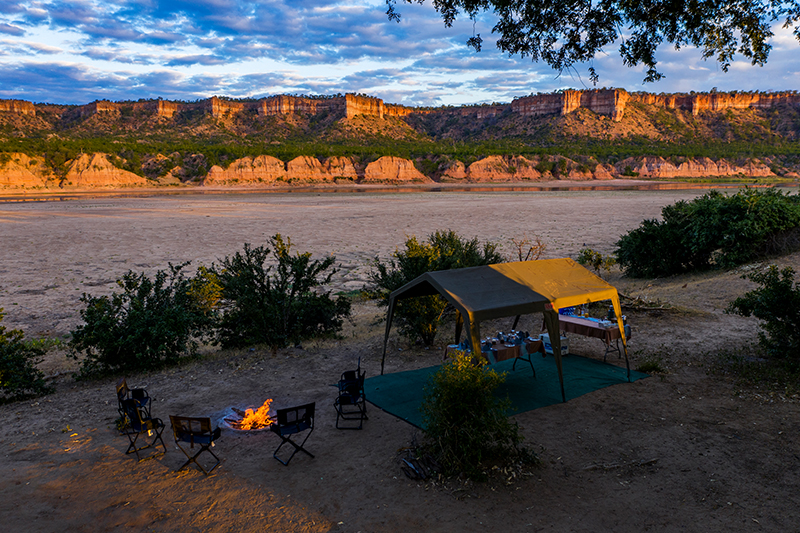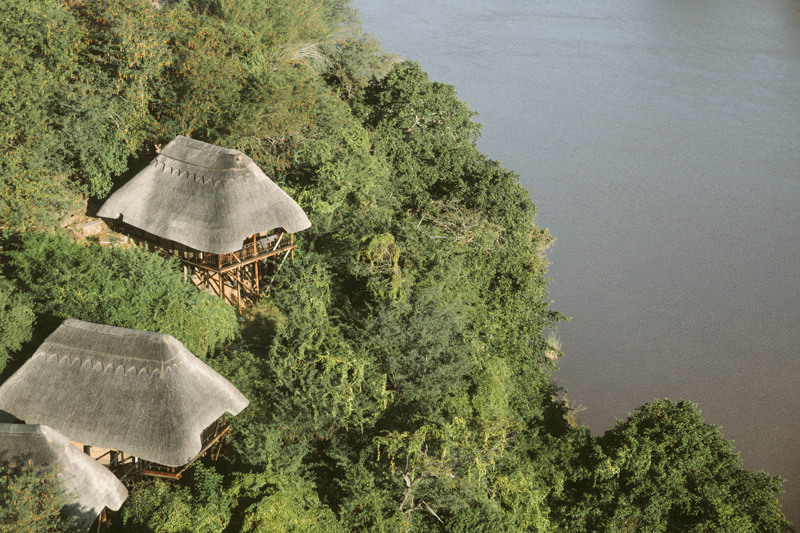Chilo Ivory Trail
Chilo Ivory Trail is a mobile camp experience which explores the wilderness areas of Gonarezhou National Park.
Chilo Ivory Trail is an exclusive use fly camp which operates from sister property Chilo Gorge Safari Lodge. Each safari is tailor-made and flexible, ranging from two to seven night safaris combining different areas of the remote Gonarezhou National Park. For shorter safaris the key areas to explore tend to be the Chilojo Cliffs and the north-east corner of the park where the Save and Runde Rivers converge, with the south-western area of the park being explored during longer itineraries. It is possible to include a mix of walking and driving, and Chilo Ivory Trails will suit those who really want to get off the grid and explore a truly wild and exclusive wilderness.
Rooms
Being a mobile camp, accommodation is simple and provided in 10 foot dome tents with a camp bed, bedside table, washstand and solar lantern. Behind each tent is a private long drop toilet whilst bucket showers are shared.
Central Areas
There is a mess tent where dining takes place during wet weather, otherwise meals times are enjoyed al fresco. There is also a camp fire each evening. Charging of camera equipment is done using an invertor on the game drive vehicle and laundry is done in cases of emergency. There is no Wi-Fi connectivity or mobile phone reception at the camp.
Facilities
Wi-Fi – No
Power for Charging – Yes
Swimming Pool – No
Habitat & Wildlife
Gonarezhou National Park, both beautiful and varied in terms of scenery, is situated on the south-eastern border of Zimbabwe and covers an area of 5000 square kilometres. The park is also part of the Great Limpopo Transfrontier Park, a 35 million hectare cross-border initiative with the Kruger National Park in South Arica and Limpopo National Park in Mozambique. Gonarezhou means ‘place of the elephants’, and the area is excellent elephant country with over 8,000 of them.
The park has some stunning scenery, particularly the impressive red sandstone cliffs of Chilojo Cliffs overlooking the Runde River which carves its way impressively through the park. The habitat is diverse and ranges from riverine forest and wetlands to mopane woodland, granite hills and Cretaceous sandveld above the cliffs (a habitat much like the Kalahari). These different ecosystems mean that game viewing is very productive, and the park is home to lion, leopard, wild dog, cheetah, hyaena, buffalo, elephant, zebra, giraffe, kudu, nyala, impala, steenbok, blue wildebeest, hippo, crocodile, golden mole (sandveld), bushbuck, Sharpe’s grysbok, klipspringer, grey duiker, waterbuck, eland, roan, sable, caracal, bat eared fox, African wild cat, civet, porcupine, aardwolf and aardvark. However, this is a true wilderness area, and game is sometimes a little spread out and occasionally skittish. Bird life is also prolific with over 450 species recorded, including bat hawk, green malkoha, gorgeous bush shrike, narina trogon, Pel’s fishing owl and chestnut-fronted helmetshrike.
Activities
Your safari is hosted by your private professional guide and tracker. Game viewing activities may include game drives by day in open safari vehicles and bush walks. It is also possible to do a solely walking safari if desired, activities can be completely tailored to suit.
Seasons
Ivory Trails operate from March through to December, though conditions will be best from July through to October.
The minimum recommended age for children is six years, and all children under 12 years must each be accompanied by one adult. On balance though this is unlikely to be a suitable product for families with young children. There is no family specific accommodation and with the very wild nature of the camping experience, Ivory Trails will naturally be much better suited to adventurous families with older teenage children, looking for an immersive safari experience.
Chilo Gorge Lodge founder and director Clive Stockil has won numerous awards for his pioneering approach and commitment to community led conservation. The first CAMPFIRE programme (Communal Areas Management Programme for Indigenous Resources) in Zimbabwe was started here, and its principles have since been replicated across Africa and the rest of the world. The intimate working relationship between the lodge and the local Shangaan community makes a visit to Mahenye Village a rewarding and educational experience and learning about the impact of conservation tourism is part of guest experience at Chilo. Through this collaboration the village now has a clinic, schools and boreholes. The lodge supports a nutritional gardens initiative which allows the female farmers of Mahenye Village to grow vegetable gardens which supports food security in the community, while also having a market in supplying the lodge.
Chilo was involved in helping the establishment of the Jamanda Conservancy which ensure the peaceful coexistence between the local community of Mahenye and surrounding wildlife areas of Gonarezhou. The community has relinquished 120 square kilometres of their cattle grazing land, which is bordering Gonarezhou National Park for wildlife conservation and photographic safaris. The land has been protected with fences and anti-poaching patrols and today, wildlife roams freely in this conservancy, established by the community.
Chilo Gorge also works closely with the Gonarezhou Conservation Trust (a ground-breaking partnership between Zimbabwe Parks and Wildlife Management Authority and Frankfurt Zoological Society) on regeneration and conservation of this wilderness area.
Guests who have space in their suitcases can bring specific school and medical supplies through Pack 4 a Purpose.



